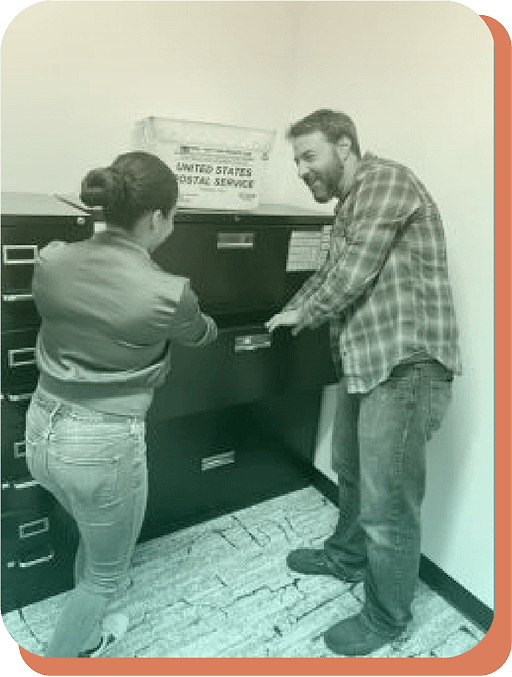How to Start a Food Truck Business in Texas
Before you can start a food truck business in Texas, you’ll need to obtain the required licenses and permits. And of course, you’ll need the food truck itself. We explain the basic requirements for starting a food truck in Texas.
Texan can help make your food truck a success with comprehensive local support:
- LLC formation service for asset protection.
- Most affordable Texas registered agent—$35/year.
- Free use of our Austin business address.
- Complete business identity with a website, email, & phone service.
- Free compliance reminders & annual renewal service at no upfront cost.
Why Open a Food Truck in Texas?
Food trucks have become insanely popular in recent years, and nowhere is this more true than our great state of Texas. Austin alone boasts an estimated 2,000 food trucks, and that number is only expected to grow in the coming years.
Starting a food truck requires less upfront capital and has lower overhead costs than a traditional restaurant, making it a great way for an entrepreneur to get a foothold in the business. The mobility of food trucks also lets you test out locations and hours to maximize profits.
How Does the Food Truck Freedom Bill Affect My Business?
The requirements to start up a food truck in Texas are currently in flux, as Texas recently passed a law called the Food Truck Freedom Bill, which will create a single statewide mobile food vendor license. The law should make it much easier to start a food truck business, since vendors will able to get one state license instead of needing local permits in every place where they do business.
The Food Truck Freedom Bill will go into full effect in July 2026. In the meantime, lawmakers say you should still follow your local government’s requirements when opening a food truck. We’ll go over the general steps you’ll need to take, but keep in mind that each city and county will have slightly different requirements.
Guide to Starting a Texas Food Truck Business
You’ll first want to create a detailed business plan that you’ll be able to show to investors, banks, and potential business partners. This document should cover things like…
- Your food truck concept
- Staff and management
- A sample menu
- Market research
- What sets your food truck apart from competition
- Financing plan
Not only will a good plan make others want to invest in your business, but it will help you fully think through your food truck idea before you start spending money on it.
Next, decide what legal structure you want for your food truck. The most common business structures for food trucks are:
- Sole proprietorship. An informal business owned by one person. There is no legal separation between the owner and the business, and all business debts and lawsuits are the owner’s personal responsibility.
- General partnership. Similar to a sole proprietorship, but owned by multiple people.
- Limited liability company (LLC). An LLC is registered with the Secretary of State as a legally separate entity from its owner(s). If the business is sued or defaults on a debt, the owners usually can’t be held personally liable.
Why start an LLC for a food truck business?
Starting a food truck comes with risks. A customer could get food poisoning and sue your business. And if you’re operating as a sole proprietor or general partnership, you could risk losing your life savings or your house.
When you form an LLC in Texas, your business becomes a separate legal entity. If your business is sued, your personal assets are typically off-limits. Just keep in mind that it’s important to keep business and personal finances separate to maintain your limited liability status.
An LLC can also help you protect your privacy. When you hire Texan to form your LLC, you can use our Austin business address on your LLC Certificate of Formation, keeping your home address out of public databases.
If you decide to structure your business as an LLC or corporation, you’ll be required to appoint a registered agent at the time of formation. By law, your registered agent must have a public Texas address and be available to accept legal notices sent to the business in person.
Since food trucks are mobile businesses, it’s usually impossible for a food truck owner to be their own registered agent. Instead, they typically hire a registered agent service that will accept any Secretary of State or legal notices and forward them to the business.
We provide reliable Texas registered agent service for just $35 a year. Additionally, our service includes free use of our prestigious Austin business address, just a short drive from the state capitol.
Most food truck businesses will need an Employer Identification Number (EIN). This is a tax ID number issued by the IRS, sort of like a social security number for your business. Corporations, businesses with multiple owners, and all businesses with employees are required to have an EIN.
You can get an EIN for free directly from the IRS. If you have a social security number, simply apply through the IRS website and get your EIN within minutes. If you don’t have a social security number, you’ll need to apply by phone, fax, or mail, and the process may take several months.
Decide whether you want to buy or rent your food truck. Buying a food truck typically costs anywhere from $30,000 to $100,000, depending on the quality of the truck and whether it is new or used. A truck that is fully equipped will probably cost more than one that needs to be customized.
Renting a food truck in Texas typically costs between $2,000 and $3,000 per month, but the price will vary based on the quality of the truck and the amount of time you’re renting. A benefit of renting is that the truck should come fully equipped and have vehicle insurance.
Texas food trucks need to meet specific health and safety standards before they can start operating, including:
- Be registered, fully mobile, and road-legal.
- Be fully enclosed.
- Have adequate ventilation.
- Have hot and cold running water.
- Have a handwash sink plus a 3-compartment sink for washing equipment.
- Food contact surfaces must be non-absorbent and resist corrosion (not wood).
- Have a gray water tank and trash bins for waste disposal.
- Have restrooms nearby that employees may use.
These are the general requirements, but you should check with your local health department to get the latest specific requirements.
The Food Truck Freedom Bill phases out the requirement for a central preparation facility (CPF), so you may or may not need one, depending on when and where you’re reading this. Check with your local health department to see if they still require food trucks to have a CPF.
A CPF (also called a commissary kitchen) is a retail food establishment at which the food for your food truck will be prepared. This can’t be a private residence. If you don’t own the establishment yourself, you’ll need a notarized letter saying you’re authorized to use the CPF.
Check with your local government for the most up-to-date information on the business licenses and permits required. We’ve listed the most common requirements.
Food Protection Manager Certificate and Food Handler Cards
Texas law requires you to have a certified food manager on site during hours of operation. Employees who don’t have a food manager certificate must get a food handler’s license (food handler’s card) within 30 days of being hired.
Commercial Vehicle Registration
Your food truck is a commercial vehicle, so you’ll need to get commercial vehicle insurance and register with the Texas DMV. Depending on the weight of your vehicle and whether you’re towing a trailer, you may also need a commercial driver’s license (CDL). Check with your local DMV to see if a CDL is required for you.
Mobile Food Unit Permit
Starting July 1, 2026, food truck owners will be able to get a statewide mobile food unit permit that allows them to operate across the state of Texas. Until then, many counties still require you to have a local mobile food unit permit. For example, to operate a food truck in Houston, you’ll need a Houston Mobile Food Unit Medallion.
Reach out to your local health officials to find out what’s required. If you’re going to operate in multiple counties, be sure to research the permitting requirements in each county.
Sales Tax Permit
Every Texas business that sells taxable goods or services needs to apply for a sales tax permit (also called a seller’s permit) from the Texas Comptroller. This permit allows you to collect sales tax from customers. You can apply online for free through the TX Comptroller website.
Fire Safety Certificate
Most food trucks, especially those using propane tanks, deep fryers, or grills, will need an inspection from their local fire department. General safety guidelines include:
- Propane tanks must be secure, and gas lines must be up to code.
- There must be a Class K fire extinguisher in the truck.
- Emergency exits must be clear.
- You may be required to install a fire suppression system.
Contact your local fire marshal to schedule an inspection. The marshal will likely give you a checklist of all safety requirements.
It’s important to get insurance to protect yourself and your business from potential risks. You’re required to have commercial auto insurance for your vehicle. Most cities in Texas require food trucks to purchase general liability insurance, which protects against third-party claims, such as if a customer is injured on your property.
Workers’ compensation insurance isn’t required in Texas, but it’s often a good idea. Workers’ comp can pay for medical treatment and wage replacement for employees who are injured on the job.
Each city and county has its own rules for where mobile food vendors can park. For example, there may be limits to how long you can park on a public street, or there may be restrictions around parking close to schools or brick-and-mortar restaurants.
Many food truck vendors set up shop in food truck parks, or in private lots with the owner’s permission. Reach out to your local government to learn their specific laws.
Once you’re licensed, insured, and have perfected your menu, it’s time to get the word out about your new food truck.
Having a strong social media presence is essential. It’s also a good idea to create a website. Not only does a website give your business credibility, but it makes it easy to share your menu, post customer reviews, and provide a contact form where people can hire your services.
When you hire Texan to form your company, we provide a domain name, website, email address, and local phone number.
Rather than settling on one location and schedule immediately, it’s smart to test out different locations and hours. Look for places with a lot of foot traffic, such as business districts, bars, farmers’ markets, or festivals. Start experimenting, and see where you make the most profit!
For a Business on the Go, Hire Professional Services That Are Always There for You
Here’s what you get when you hire Texan to start your LLC:
- Fast, accurate formation filing guaranteed
- Austin business address for privacy protection
- Best price for registered agent—just $35/year
- Start reaching customers with website, email, & phone service
- Compliance reminders & renewal service (no upfront cost)
Texas Food Truck FAQs
Start-up costs for a Texas food truck business typically range between $50,000 to $200,000. It will vary based on whether you buy (or rent) a new or used truck, the type of equipment you need, your location, and other factors. Here are some common start-up costs for opening a food truck:
- Buying a food truck: Around $30,000 and $100,000.
- Licensing and permitting fees: Vary by county but range from $100 to over $1,000.
- Equipment: Approximately $45,000 on average. The cost will vary based on the type of food being served.
- Insurance: Approximately $1,000 to $3,000 per year, including vehicle, general liability, and workers’ compensation insurance.
Food trucks can be very profitable. It’s estimated that the average annual revenue for a food truck ranges between $250,000 and $500,000 per year. Every business venture comes with risk, but food trucks tend to be less risky than brick-and-mortar restaurants, as the start-up and overhead costs are significantly lower.
In most cases, food trucks in Texas are not allowed to serve alcohol. According to the Texas Alcoholic Beverage Commission website, your business must operate from a permanent physical address in order to serve alcohol. However, there are exceptions. Food trucks that operate in a permanent food court that has its own liquor license may serve alcohol.



